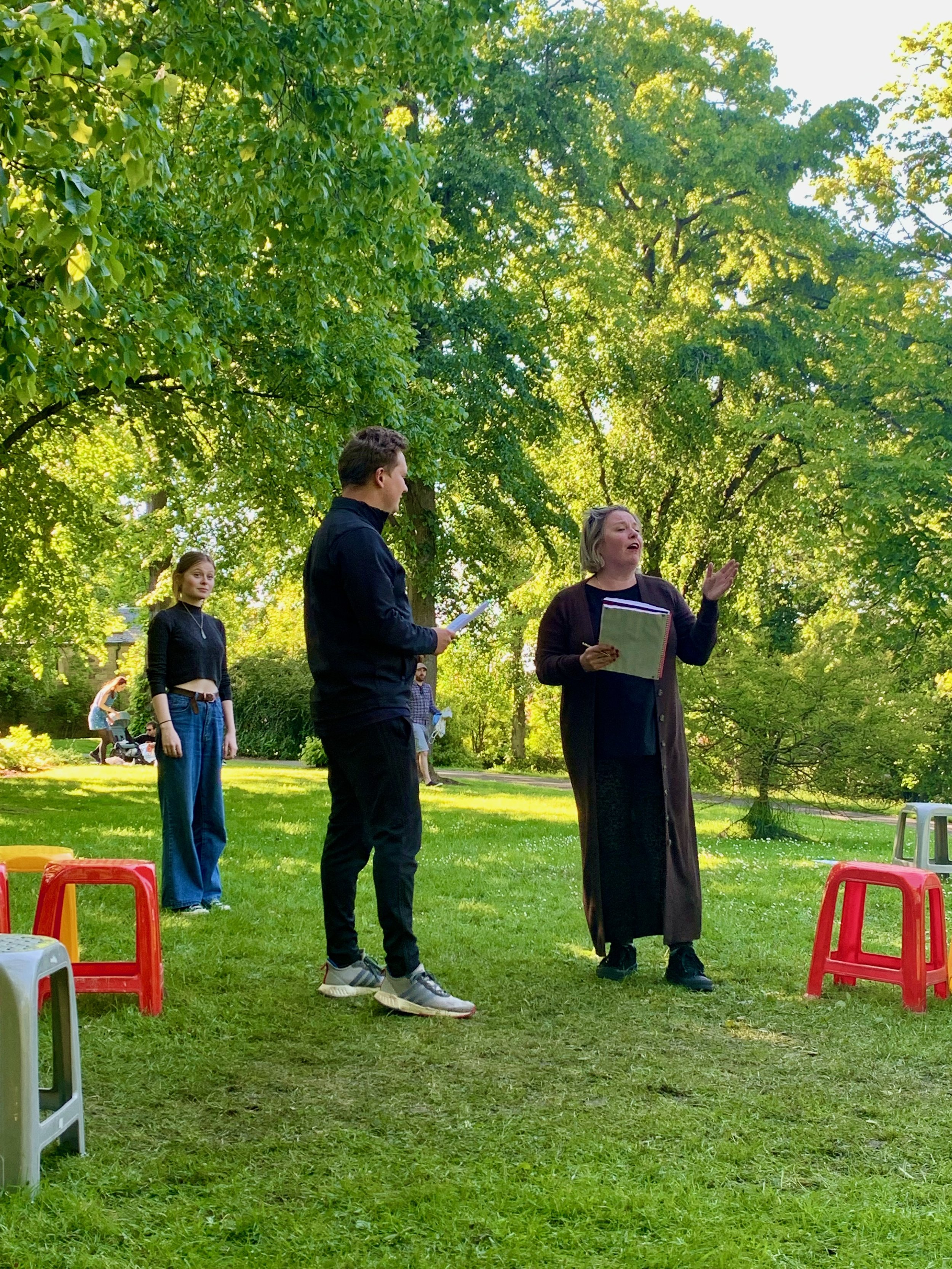"Exploring Greek Drama" - Inside the Medea Rehearsal Room
/Assistant Director, Colette Hamilton, takes us inside the rehearsal room for our brand new production of “Medea”
In preparation for assistant directing Medea, I spent a lot of time researching the myth of Medea and Jason. It brought me back to when I was studying Greek drama in theatre history class while getting my undergraduate degree. I remember it feeling like I was studying a museum exhibit rather than a theatrical form I would one day interact with. We spent a lot of time learning about the theatrical spaces they would’ve performed in, the masks that the actors would’ve worn, and the influence of the gods on theatre at that time. The grandeur of it combined with the backdrop of mythology made it difficult to connect with the material. In a way, it felt inaccessible to me. I always wondered how these plays from around the 5th century BC could possibly resonate with modern audiences, but as we work to bring Kathy McKean’s adaptation of Medea to life, I am seeing the potential and beauty of Greek drama unfold in front of me.
Nicole Cooper as Medea
Kathy’s writing transcends what I thought Greek tragedy could be. It is poetic, personal and humanising. In the last two weeks of rehearsals, we’ve spent time exploring the characters and their relationships, and searching for the truth in every moment. It is easy for me to forget that we’re working with such a grand story as I watch these four extraordinary actors bring so much vulnerability and heart to their work.
Isabelle Joss as the Nurse, with Medea
It is interesting to reflect on the history of Euripides’ Medea. At the time it was first performed, it came in third place (out of three plays) in the City Dionysia festival, which tells us that it was not well received by audiences at the time. It also suggests that Euripides was pushing the envelope for what could be put on stage. In the late 20th century, there was a renewed interest in Medea from the feminist movement. It was viewed as a nuanced and sympathetic portrayal of a woman’s struggle to take charge of her own life in a male-dominated world, which audiences can still relate to today. It is now considered one of the great plays in Western theatre.
Alan Steele as Creon
As we begin the final week of rehearsals before production week, I feel excited to see how the production will continue to form. I also can’t help but think about how the experience will be for audiences. Having a chorus is a staple of Greek drama, and in this production, the audience act as the chorus for Medea and the other characters. How will it be for them to go on this journey with Medea and the other characters? How will they interpret the action of it? How will it change the experience for the actors? The catharsis I have been experiencing over the last two weeks is not what I expected from working on Medea, and I hope audiences have a similar experience.
Johnny Panchaud as Jason and Nicole Cooper as Medea
Despite the play being a tragedy, there is no shortage of laughter and play in the rehearsal room. The kindness and warmth that each member of the team brings to the space makes this a truly special experience. Every day, my relationship with Greek theatre is changing, and I feel so fortunate to be a part of this production. It feels like just yesterday I was preparing for day one of rehearsals for Medea, and just like that, the first two weeks are done.














